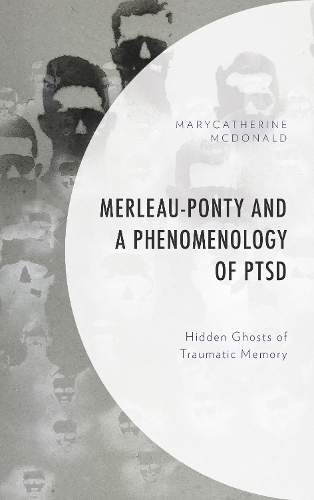
Merleau-Ponty and a Phenomenology of PTSD: Hidden Ghosts of Traumatic Memory
(Hardback)
Publishing Details
Merleau-Ponty and a Phenomenology of PTSD: Hidden Ghosts of Traumatic Memory
By (Author) MaryCatherine McDonald
Bloomsbury Publishing PLC
Lexington Books
29th April 2019
United States
Classifications
Professional and Scholarly
Non Fiction
Phenomenology and Existentialism
Abnormal psychology
616.8521
Physical Properties
Hardback
164
Width 159mm, Height 232mm, Spine 18mm
431g
Description
Despite the fact that we have been studying posttraumatic stress disorder (PTSD) since at least the late 1800s, it remains prevalent and, in many cases intractable. Merleau-Ponty and a Phenomenology of PTSD: Hidden Ghosts of Traumatic Memory begins with the assertion that we struggle to successfully treat PTSD because we simply do not understand it well enough. Using the phenomenological approach of Maurice Merleau-Ponty which focuses on the first-person, lived experience of the trauma victim Merleau-Ponty and a Phenomenology of PTSD: Hidden Ghosts of Traumatic Memory focuses on reframing our understanding of combat trauma in two fundamental ways. First, the concepts of embodiment and adaptation give us an understanding of the human being as fundamentally adaptive. This allows us to view traumatic responses as adaptive as well. When the roots of traumatic injury become reframed in this way, combat-related PTSD can be understood more accurately as a set of symptoms borne of strength and survival rather than weakness or disorder. Second, phenomenology reveals that a different ghost haunts those who are afflicted by trauma. For the past century, trauma studies across disciplines have all assumed that the ghost of a singular traumatic event haunts the sufferer. While this is likely a part of the problem, further study shows that those who suffer from trauma are also haunted by the specter of a world without meaning. In other words, phenomenology reveals that what is injured in trauma is not just the mind or the body but the entire worldview of the individual. It is this aspect of the injury the shattering loss of ones blueprint of the world that is missing from other accounts of trauma. Rather than aim to upend previous research in the fields of psychology and neuroscience, Merleau-Ponty and a Phenomenology of PTSD: Hidden Ghosts of Traumatic Memory uses the phenomenological approach to bring them together and expand then. It is in this expansion that we are able to consider what we may have previously missed which stands to improve our understanding and treatment of trauma in general.
Reviews
Weaving together insights from neuroscience, psychology, and Merleau-Ponty's phenomenology, MaryCatherine McDonald has written a groundbreaking analysis of human trauma. Her writing is consistently crisp and clear and rich with concrete examples. This is a wholly original work that will be a valuable resource in trauma studies for years to come. -- Kevin Aho, Professor of Philosophy, Florida Gulf Coast University
Author Bio
MaryCatherine McDonald is assistant professor of philosophy at Old Dominion University.
